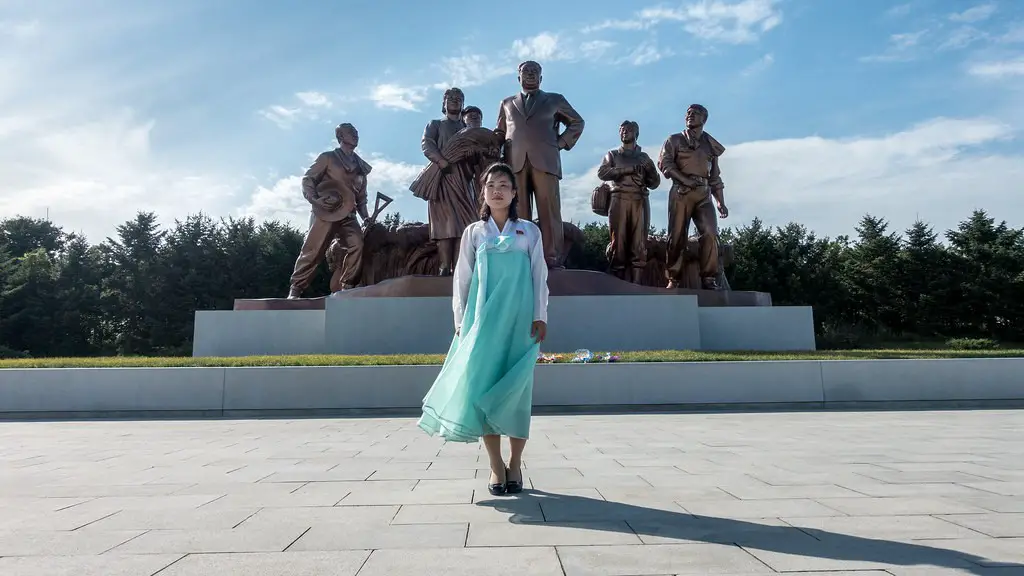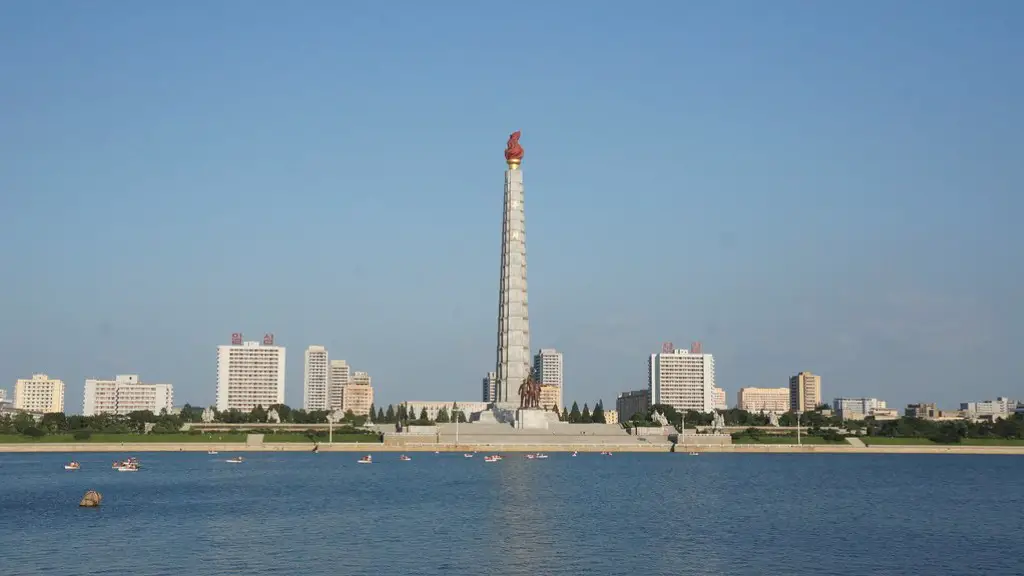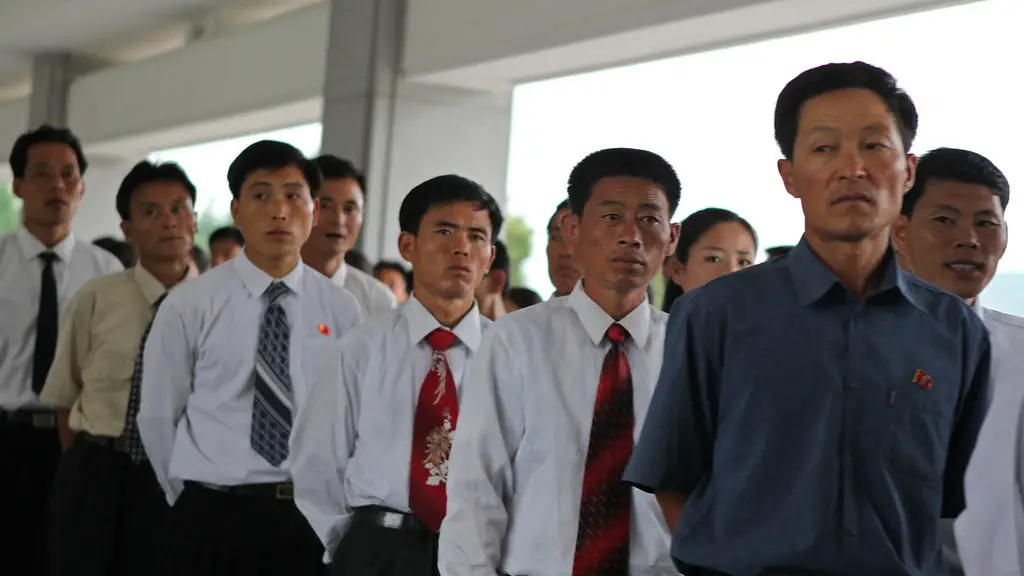The Republic of North Korea, commonly known as North Korea, and the Republic of South Korea, or South Korea, are two nations situated in the Korean Peninsula and separated by the world’s most heavily militarized border. North Korea and South Korea have a long history of human struggle and animosity, and their conflict still exists today. North Korea is noticeably much poorer than South Korea, a difference that affects the people of both countries in profound ways. The purpose of this article is to explore why the two countries differ in wealth, and what this disparity has meant for them.
Conflict and War
At the end of World War II Korea experienced a difficult period of transition that saw the Japanese occupation end and a Soviet Union-backed regime in the North, and an American-backed regime in the South. To this day, the Korean War of 1950-53 has left the two countries in a perpetual state of conflict, a situation that has had a major effect on their respective economies.
The Korean War has prevented economic cooperation and integration between North and South Korea and has had a devastating impact on North Korea’s economy. For example, the North Korean government has had to divert huge amounts of resources to its military budget in order to defend itself against perceived aggression from South Korea and its allies. As a result, North Korea’s economic growth has been significantly hampered, and its infrastructure and industry are heavily outdated.
Trade Embargoes
In addition to the civil strife within its borders, North Korea faces additional economic challenges from the outside world. The United Nations has imposed a series of trade embargoes on North Korea in response to nuclear testing, human rights abuses, and other transgressions. These embargoes have drastically hindered North Korea’s ability to trade on the global market, creating a huge economic disadvantage against South Korea, which enjoys free trade with many economic partners.
The effects of the trade embargoes have been further compounded by North Korea’s reputation as an international pariah. Countries are often reticent to do business with North Korea due to its history of human rights violations, which makes it difficult for North Korea to attract foreign investment or access vital business opportunities.
Centralization and Lack of Investment
Another key factor in why North Korea is poorer than South Korea is the nature of its political and economic management. North Korea is one of the few remaining Stalinist regimes left in the world and its economy is still heavily driven by a centrally planned command-and-control style of governance.
The North Korean government maintains a tight grip on the economy and has proven to be hostile to foreign investment. This lack of investment has made it difficult for North Korea to fund infrastructure projects and modernize its industrial base.
Inequality
Finally, North Korea suffers from extreme economic inequality. The nation’s economic system is designed to benefit the ruling elites and to prop up the economy with money earned from trading basic goods. This means that much of the wealth generated in North Korea is concentrated among the top 1%, while the majority of citizens struggle to make ends meet.
In contrast, South Korea enjoys a much more equitable economic system and has invested heavily in social welfare, education, and healthcare. This has created an environment where citizens are more productive and their wages are more stable, resulting in higher overall prosperity.
Governmental Responsibility and Leadership
The North Korean government must take responsibility for the current state of the North Korean economy. Its authoritarian leadership has oppressed its own citizens and caused much suffering and deprivation. To this day, the North Korean government uses fear tactics and heavily limits the personal freedoms and rights of its citizens.
The South Korean government, meanwhile, has implemented a series of comprehensive economic reforms and has invested heavily in its infrastructure. These reforms have enabled South Korea to become a major global economic power and to establish close economic and diplomatic ties with numerous countries around the world.
Cultural Attitudes and Practices
Cultural attitudes and behavior also play an important role in why North Korea is poorer than South Korea. South Korea has a strong culture of entrepreneurship and hard work, which has enabled its citizens to become successful in business and career advancement.
In contrast, North Korea has an entrenched culture of government control and limited individual freedom. This has discouraged risk-taking and creativity, which has made it difficult for North Korean citizens to achieve prosperity.
International Aid and Intervention
International aid and intervention have also contributed to the differences in the economic development of North and South Korea. South Korea has received large amounts of foreign aid in the form of loans, grants, and technological assistance, which have enabled its citizens to create wealth and become more prosperous.
North Korea, on the other hand, has largely been isolated from the international community and has received only a small amount of international aid in comparison. This lack of investment has hindered North Korea’s economic development and has contributed to its current state of poverty.
The Role Of Propaganda
Propaganda has also played a major role in the development of the two economies. North Korea has embraced a strong cult of personality around its ruling family and has relied heavily on rhetoric to persuade its people to adhere to its ideologies. This has led to a lack of accurate information about the nation’s economy, which has made it hard for citizens to make informed decisions about their own economic well being.
South Korea, on the other hand, has embraced a more open approach to information dissemination and has promoted its economic success by highlighting facts and figures. As a result, South Koreans are more informed about their economy and better able to identify opportunities for growth and prosperity.
Conclusion
Overall, the economic disparities between North and South Korea are clearly evident. North Korea is isolated politically, economically, and culturally, whereas South Korea has experienced unprecedented economic growth over the past few decades. Factors such as the Korean War, trade embargoes, centralized economic structure, inequality among citizens, governmental responsibility and leadership, cultural attitudes and practices, and international aid are all contributors to why North Korea is poorer than South Korea, and why South Korea has experienced more economic success.



